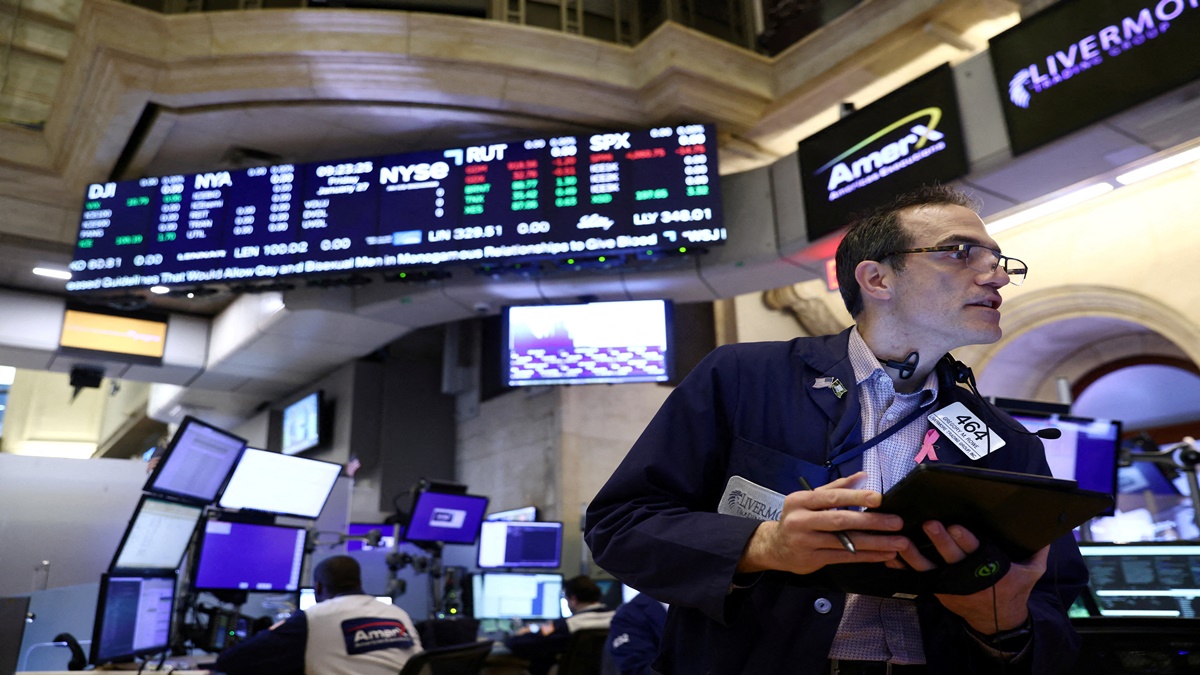Asian stocks rose on Thursday, as traders figured a small upside surprise for U.S. inflation was unlikely to push up interest rates and turned their focus to a European Central Bank meeting later in the session. MSCI’s broadest index of Asia-Pacific shares outside Japan rose 0.4% in early trade. Tokyo’s Nikkei rose 0.8% to a one-week high.
Overnight data showed higher fuel prices had lifted headline U.S. consumer prices by the most in 14 months in August, for an annual rate of 3.7% which was a touch above expectations. Core inflation slowed to an annual 4.3%, as expected. Treasury yields initially spiked higher, as did the U.S. dollar, before both retraced the move.
“It does feel like the highly anticipated Fed pause next week is outweighing the fact that inflation has risen at the fastest pace in more than a year.” Fed funds futures hardly budged on the inflation data, and imply nearly no chance of a rate hike next week, and about a 45% chance of another hike by year’s end.
Also overnight chip designer Arm Holdings secured a $54.5 billion valuation, with its IPO pricing at $51-a-share at the top of the indicated range. It begins trading on Thursday.
The S&P 500 rose 0.1% and futures rose 0.2% in Asia. European futures were flat. Around Asia stock moves were mostly modest, with the Hang Seng up 0.2%, South Korea’s Kospi up 0.9% and mainland Chinese markets flat. Chinese electric vehicle stocks slipped after the EU announced a probe into their subsidies.
HIKE OR HOLD?
The euro has been supported this week by creeping expectations for the European Central Bank to hike rates on Thursday, though analysts say it may struggle for further gains. Markets are leaning towards a hike that would take Europe’s key interest rate to a record peak and the common currency – last at $1.0739 – has traded as high as $1.0770 this week. “Either the ECB surprises by not hiking, or they deliver a very dovish late cycle hike,” said Brent Donnelly at Spectra Markets. “Either way, it’s not bullish euro,” he said.
Elsewhere in foreign exchange markets the Australian dollar was boosted by a surge in employment in August and it rose about 0.4% to $0.6440. Interest rate expectations were little changed. The New Zealand dollar was also firmer at $0.5941, while the dollar slipped about 0.2% to buy 147.11 yen.
The yen has mostly handed back gains made after Bank of Japan Governor Kazuo Ueda hinted at the conditions for an end to negative short-term rates, as traders figure on any exit being slow and the gap with U.S. rates remaining wide. China’s yuan was steady at 7.2718 per dollar.
In commodity markets oil is on a tear as Saudi Arabia and Russia extend production cuts to the end of 2023. Brent crude futures are up 30% in three months to $92.32 a barrel. Gas markets were skittish as strikes were set to begin at production projects in Australia that account for more than 5% of global supply. Overnight benchmark European gas prices were up 6.5%. U.S. retail sales figures are also due on Thursday, with markets expecting to see a slowdown.

